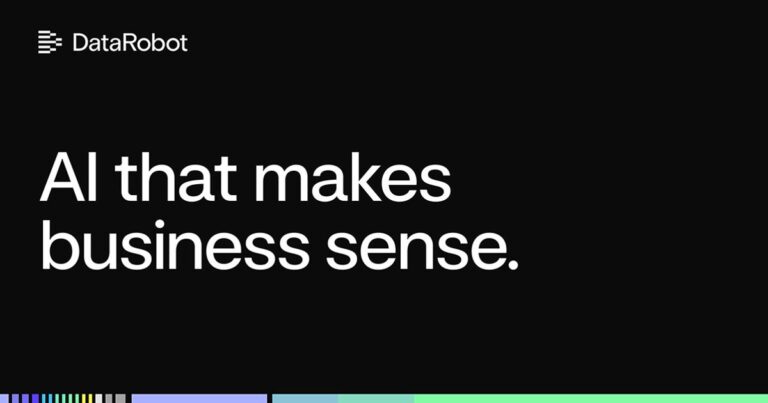AI Tools for Personal Finance Management: Transforming How We Handle Our Money
In today’s fast-paced digital world, artificial intelligence (AI) is reshaping industries, and personal finance is no exception. From budgeting apps to investment platforms, AI-driven tools are empowering individuals to take control of their financial lives with unprecedented precision, convenience, and insight. These technologies are not just simplifying tasks—they’re redefining how we understand, manage, and grow our money. Whether you’re a seasoned investor or a first-time budgeter, AI tools are making financial management more accessible, efficient, and personalized. Let’s explore how they’re changing the game.
The Rise of AI in Personal Finance
Artificial intelligence, once a futuristic concept, is now a staple in everyday financial applications. By leveraging machine learning, natural language processing, and predictive analytics, AI tools analyze vast amounts of data to provide tailored recommendations, automate repetitive tasks, and detect patterns that humans might miss. This shift is driven by the demand for real-time financial insights, the need for cost-effective solutions, and the growing complexity of personal financial ecosystems.
According to a 2023 report by McKinsey, AI adoption in financial services has surged, with over 70% of consumers using at least one AI-powered tool for managing their money. These tools are bridging the gap between traditional financial advice and modern, tech-savvy solutions, offering something for everyone.
Types of AI Tools for Personal Finance
-
Smart Budgeting and Expense Tracking Apps
Apps like Mint, YNAB (You Need A Budget), and PocketGuard use AI to categorize transactions, track spending habits, and predict future expenses. For example, Mint integrates with bank accounts to automatically sort purchases into categories (e.g., groceries, utilities) and alerts users to unusual spending patterns. YNAB employs AI to help users plan their budgets by analyzing income and expenses, while PocketGuard uses machine learning to simplify bill tracking and suggest optimal payment timelines. -
Robo-Advisors for Investment Management
Platforms like Betterment, Wealthfront, and Acorns utilize AI to create and manage investment portfolios based on users’ risk tolerance, financial goals, and time horizons. These tools analyze market trends, rebalance portfolios, and optimize asset allocation without the need for human oversight. For instance, Acorns offers "Stash" features that use AI to automatically invest spare change from purchases, making it easier for users to build wealth incrementally. -
Fraud Detection and Security Tools
Banks and fintech companies are leveraging AI to monitor transactions in real time and flag suspicious activity. Tools like Plaid and Stripe use machine learning algorithms to detect anomalies, reducing the risk of fraud. Some apps, such as Numerator, even offer AI-powered credit monitoring to alert users to potential identity theft or credit score fluctuations. -
Personalized Financial Advice and Chatbots
AI-driven chatbots like Rochelle (by Capital One) and Cleo (by Kabbage) provide instant financial guidance through conversational interfaces. These tools can answer questions about spending, savings, and credit scores, while also offering actionable tips. For example, Cleo uses natural language processing to engage users in a friendly, conversational tone, making financial planning feel less intimidating. -
Debt Management and Loan Optimization
AI tools like Undebt and Upstart analyze debt patterns and suggest strategies to pay down loans faster. Upstart, for instance, uses AI to evaluate loan applications, offering more favorable rates based on non-traditional data points like education and employment history. -
Tax Planning and Forecasting
AI-powered platforms like H&R Block’s AI Tax Advisor and TaxAct help users prepare taxes by identifying deductions, predicting refunds, and flagging potential errors. These tools use data from previous years to forecast future tax liabilities and recommend strategies to minimize them.
Benefits of AI in Personal Finance
- Automation of Repetitive Tasks: AI eliminates the need for manual data entry, categorizing transactions, and tracking bills, saving users time and reducing human error.
- Personalized Insights: By analyzing spending patterns and financial goals, AI tools offer customized advice, such as suggesting savings targets or optimizing investment portfolios.
- Real-Time Monitoring: Instant alerts for irregular transactions, overspending, or upcoming bills help users stay on top of their finances.
- Predictive Analytics: AI can forecast cash flow, identify trends, and even predict credit score impacts based on user behavior.
- Accessibility and Affordability: Robo-advisors and budgeting apps often have lower fees than traditional services, democratizing access to financial expertise.
For example, a user might receive a notification from an AI app that their coffee spending has increased by 20% this month, along with a suggestion to cut back by switching to a cheaper brand. Such actionable insights make financial management more intuitive.
Challenges and Considerations
While AI tools offer immense value, they are not without challenges:
- Data Privacy Concerns: Sharing financial data with AI platforms raises questions about security and how information is stored or used. Users must ensure they choose reputable providers with strong encryption and transparent policies.
- Over-Reliance on Automation: AI is a tool, not a substitute for financial literacy. Users should understand the recommendations and not blindly follow them.
- Algorithmic Bias: Some AI systems may inadvertently favor certain demographics or overlook unique financial situations, leading to suboptimal advice.
- Complexity and Transparency: Not all users fully grasp how AI algorithms work, which can make it hard to trust recommendations.
To mitigate these risks, it’s crucial to use AI tools as a supplement to human decision-making. For instance, a robo-advisor might suggest a portfolio allocation, but users should still review the strategy and consult a financial advisor for major decisions.
The Future of AI in Personal Finance
The future of AI in this space looks promising. Emerging trends include:
- Enhanced Predictive Capabilities: AI could predict life events (e.g., job changes, market downturns) and adjust financial plans accordingly.
- Integration with Smart Devices: Voice assistants like Alexa or Google Assistant may soon offer deeper financial insights, such as tracking expenses during grocery shopping or suggesting budget adjustments during a car ride.
- Behavioral Coaching: AI could evolve to provide psychological nudges, encouraging healthy financial habits through gamification or personalized motivation.
- Regulatory Advancements: As AI becomes more prevalent, governments may introduce stricter regulations to ensure transparency and fairness.
Moreover, AI could revolutionize financial education by offering interactive tutorials and real-time feedback, helping users build long-term money management skills.
How to Choose the Right AI Tool
When selecting an AI finance tool, consider the following:
- Reputation and Security: Opt for platforms with strong security measures and positive user reviews.
- Customization: Ensure the tool adapts to your unique financial situation and goals.
- Integration: Check if it works seamlessly with your bank, credit cards, and other financial accounts.
- Transparency: Understand how the AI makes decisions and whether it provides clear explanations for recommendations.
Conclusion
AI tools for personal finance are no longer a luxury—they’re a necessity for anyone looking to simplify financial management, reduce costs, and make informed decisions. While challenges like privacy and bias remain, the benefits of automation, personalization, and real-time insights are undeniable. As these technologies continue to evolve, they will likely become even more integral to our financial lives, helping us achieve stability and growth in an increasingly complex world.
For now, the key is to embrace AI as a partner, not a replacement. By combining machine efficiency with human judgment, we can unlock a more secure, strategic, and empowered approach to managing our money.
Final Thoughts
As AI continues to advance, its role in personal finance will only expand. Whether you’re saving for retirement, paying off debt, or simply trying to live within your means, these tools are here to help you navigate the financial landscape with confidence. The future of money management is intelligent, and it’s already in your pocket.







